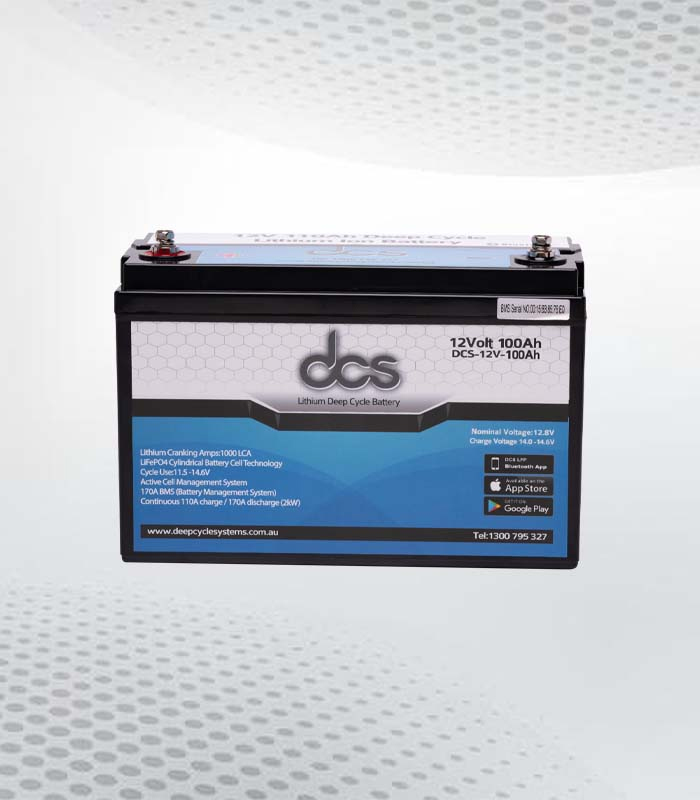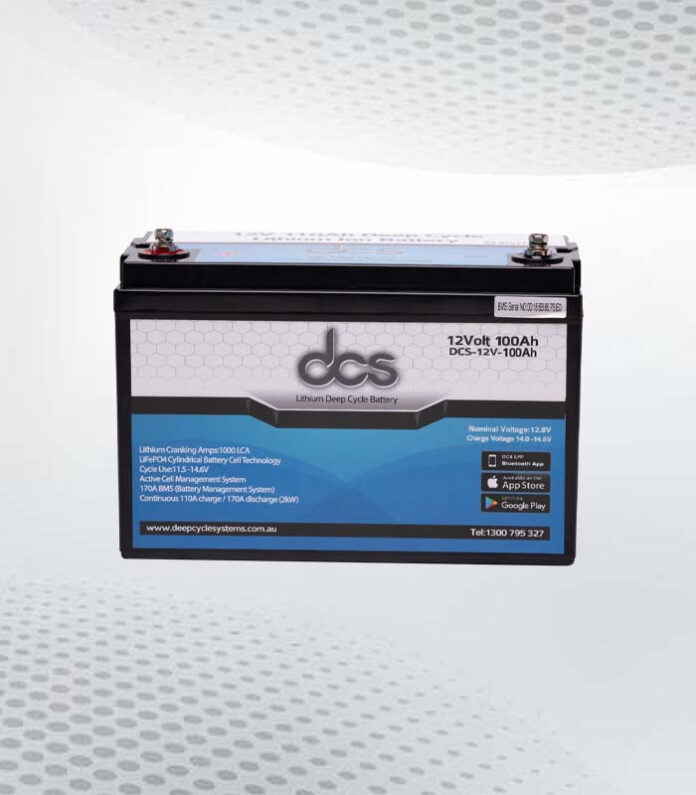Having a reliable and long-lasting boat battery is crucial when enjoying a day out on the water. Traditional lead-acid batteries have been the go-to choice for many years, but with technological advancements, there is now a new player – lithium ion boat batteries. These innovative batteries offer numerous benefits over traditional options, making them a game-changer for boating enthusiasts. This blog post will explore why a Lithium Ion Boat Battery may be the best choice for revolutionizing your boating experience.
The Advantages Of Using The Best Deep Cycle Battery For Boat
Having the Best Deep Cycle Battery For Boat can provide several advantages that greatly enhance your boating experience. Deep cycle batteries are specifically designed to provide a steady and consistent power flow over an extended period, making them ideal for boating applications.
One of the primary advantages of using the best deep cycle battery for your boat is its ability to handle high energy demands. Whether you’re powering navigation equipment, onboard electronics, or trolling motors, a deep-cycle battery can deliver the necessary power without compromising its performance.
Another advantage is their longer lifespan compared to other battery types. Deep cycle batteries are designed to withstand numerous charge and discharge cycles, allowing them to last for years with proper maintenance. This durability translates to cost savings in the long run, as you won’t have to replace your battery as frequently.
Furthermore, deep-cycle batteries are built to withstand the harsh conditions commonly encountered while boating. They resist vibrations and shocks, making them a reliable power source even in rough waters. Some deep-cycle batteries are also designed to be maintenance-free, eliminating the need for regular maintenance and ensuring hassle-free operation.
 The Importance Of A Deep Cycle Boat Battery
The Importance Of A Deep Cycle Boat Battery
Regarding boating, having a deep cycle battery is not just a luxury but a necessity. A deep cycle battery is designed to provide a steady and consistent power flow over an extended period, making it essential for boating applications.
One of the main reasons a Deep Cycle Boat Battery is important is its ability to handle high energy demands. Whether running navigation equipment, powering onboard electronics, or using a trolling motor, a deep cycle battery can deliver the necessary power without compromising performance.
Another crucial factor is the longer lifespan of deep cycle batteries compared to other battery types. Deep cycle batteries are built to withstand numerous charge and discharge cycles, making them highly durable and long-lasting. This durability translates to cost savings in the long run, as you won’t have to replace your battery as frequently.
Also, deep cycle batteries are designed to withstand the harsh conditions of boating. They resist vibrations and shocks, making them a dependable power source even in rough waters. Some deep-cycle batteries are even maintenance-free, eliminating the need for regular upkeep and ensuring hassle-free operation.
Why Choose A 12 Volt Boat Battery?
When choosing a battery for your boat, the 12 volt option is a popular and reliable. But why should you choose a 12 Volt Boat Battery? Well, there are several reasons why this type of battery is the go-to option for many boating enthusiasts.
First and foremost, a 12-volt boat battery provides sufficient power to meet the needs of most boating applications. Whether running navigation equipment, powering onboard electronics, or using a trolling motor, a 12-volt battery can handle the demands without any issues. It ensures a steady and consistent power flow, allowing you to enjoy your time on the water without worrying about battery performance.
Additionally, a 12-volt boat battery is widely available and easily accessible. You can find them in various sizes and capacities, allowing you to choose the one that best suits your boat and power requirements. With their widespread availability, it’s easy to find a replacement or a spare battery whenever needed.
Furthermore, 12 volt boat batteries are relatively affordable compared to other battery types. They offer a good balance between price and performance, making them a cost-effective option for boat owners. You don’t have to break the bank to get a reliable and long-lasting battery for your boat.
The Benefits Of Upgrading To A Lithium-Ion Boat Battery
If you want to take your boating experience to the next level, upgrading to a lithium-ion boat battery is the way to go. These innovative batteries offer a range of benefits that can revolutionize your time on the water.
First and foremost, lithium-ion boat batteries are incredibly lightweight compared to traditional lead-acid batteries. This weight reduction means that your boat will be faster and more agile, allowing you to easily navigate the water. You’ll experience improved acceleration and maneuverability, giving you a thrilling boating experience.
Lithium-ion batteries have a much higher energy density, meaning they can store more power in a smaller and more compact package. This increased energy density translates to longer runtimes for your boat, allowing you to spend more time on the water without worrying about your battery dying.
Another major advantage of lithium-ion boat batteries is their faster charging time. Unlike traditional batteries that can take hours to recharge, lithium-ion batteries can be fully charged in just a fraction of the time. This means less time waiting around and more time enjoying your favorite water activities.
Best Practices For Maintaining Your Lithium-Ion Boat Battery
Proper maintenance is key to ensuring your lithium-ion boat battery’s longevity and optimal performance. Here are some best practices to keep in mind:
Charge and discharge regularly: It is important to regularly charge and discharge your lithium-ion boat battery, even during periods of non-use. This helps to prevent the battery from losing capacity and ensures it remains in good condition.
Use the right charger: Use a charger specifically designed for lithium-ion batteries. Using the wrong charger can lead to overcharging or undercharging, damaging the battery, or reducing its lifespan.
Avoid extreme temperatures: High temperatures can cause lithium-ion batteries to degrade, while low temperatures can reduce their performance. Store your battery in a cool, dry place and avoid extreme heat or cold exposure.
Avoid over-discharging: Over-discharging can damage lithium-ion batteries, so avoid running them down completely. It is best to recharge your battery before it reaches a critically low level.
Regular inspections: Check your battery for any signs of damage or wear. Look for bulging, leaks, or any abnormalities. If you notice any issues, it is important to address them promptly.
By following these best practices, you can maximize the lifespan and performance of your lithium-ion boat battery, ensuring that it remains reliable and efficient for years to come.
Maximizing Your Boating Performance With A Lithium Battery
If you want to maximize your boating performance, upgrading to a lithium-ion boat battery is a game-changer. These innovative batteries offer a range of benefits that can take your boating experience to the next level.
- First and foremost, a lithium-ion battery is incredibly lightweight compared to traditional lead-acid batteries. This weight reduction means that your boat will be faster and more agile, allowing you to easily navigate the water. You’ll experience improved acceleration and maneuverability, giving you a thrilling boating experience.
- But it’s not just about speed. A lithium-ion battery also has a much higher energy density, meaning it can store more power in a smaller, more compact package. This increased energy density translates to longer runtimes for your boat, allowing you to spend more time on the water without worrying about your battery dying.
- And let’s not forget about the faster charging time. Unlike traditional batteries that can take hours to recharge, a lithium-ion battery can be fully charged in just a fraction of the time. This means less time waiting around and more time enjoying your favorite water activities. So, if you want to maximize your boating performance, it’s time to switch to a lithium-ion boat battery. Trust me, you won’t be disappointed.
The Environmental Impact Of Lithium Ion Boat Batteries
As we become more conscious of our environmental impact, it’s important to consider the eco-friendliness of our products, including boat batteries. When it comes to lithium-ion boat batteries, the news is mostly positive in terms of their environmental impact.
One major advantage of lithium-ion boat batteries is that they are rechargeable, meaning they can be used for an extended period without frequent replacements. This reduces the overall waste generated from battery disposal. Lithium-ion batteries do not contain harmful heavy metals like lead or cadmium, commonly found in traditional lead-acid batteries. This means lithium-ion batteries have a lower risk of polluting the environment during disposal.
However, it’s important to note that the production and disposal of lithium-ion batteries do have some environmental considerations. The mining of lithium and other minerals used in production can impact local ecosystems and communities. Companies and individuals must prioritize responsible sourcing and disposal practices to minimize these potential negative effects.
FAQs
Q: Are lithium ion boat batteries safe to use?
A: Yes, lithium ion boat batteries are safe to use when handled properly. They are designed with safety features to prevent overheating and overcharging. Just follow the manufacturer’s guidelines for proper use and maintenance.
Q: Can I use a lithium ion battery with my current boat setup?
A: In most cases, yes. Lithium ion batteries are compatible with most boat setups. Still, it’s always a good idea to check your boat’s electrical system and consult a professional if you have any doubts.
Q: How long does a lithium ion boat battery last?
A: The lifespan of a lithium ion boat battery can vary depending on usage and maintenance. However, on average, they can last 5-10 years with proper care.
Q: Are lithium ion boat batteries expensive?
A: Lithium ion boat batteries may have a higher upfront cost than traditional lead-acid batteries, but they offer long-term cost savings due to their longer lifespan and higher efficiency.
Q: Can I recharge a lithium ion boat battery using solar power?
A: Lithium ion boat batteries are compatible with solar power systems. They can be charged using solar panels, allowing you to harness the sun’s energy for a more sustainable boating experience.
Q: How do I dispose of a lithium ion boat battery?
A: It’s important to recycle lithium ion boat batteries properly. Many recycling centers accept them, so check with your local waste management facility for drop-off locations.
Conclusion
This blog post has explored the advantages of using the best deep cycle battery for your boat, the importance of a deep-cycle boat battery, and why choosing a 12-volt boat battery is a practical choice for boating enthusiasts. We also delved into the benefits of upgrading to a lithium-ion boat battery, the best practices for maintaining it, and how it can maximize your boating performance.
This Article Was First Published On
Revolutionize Boating Experience with a Lithium Ion Boat Battery
| Other Good Articles to Read |
| Blogs-Nation |
| Blogs-Peoples |
| Bryan Smith Blogs |
| Intellect Blogs |
| The Fault In Our Blogs |
| Blogs Eu |
| Oz Forums |
| Recruitment Blogs |
| Zet Blogs |
| Id Blogs |
| Blogs Tudiolegale |
| Blogs Map |


